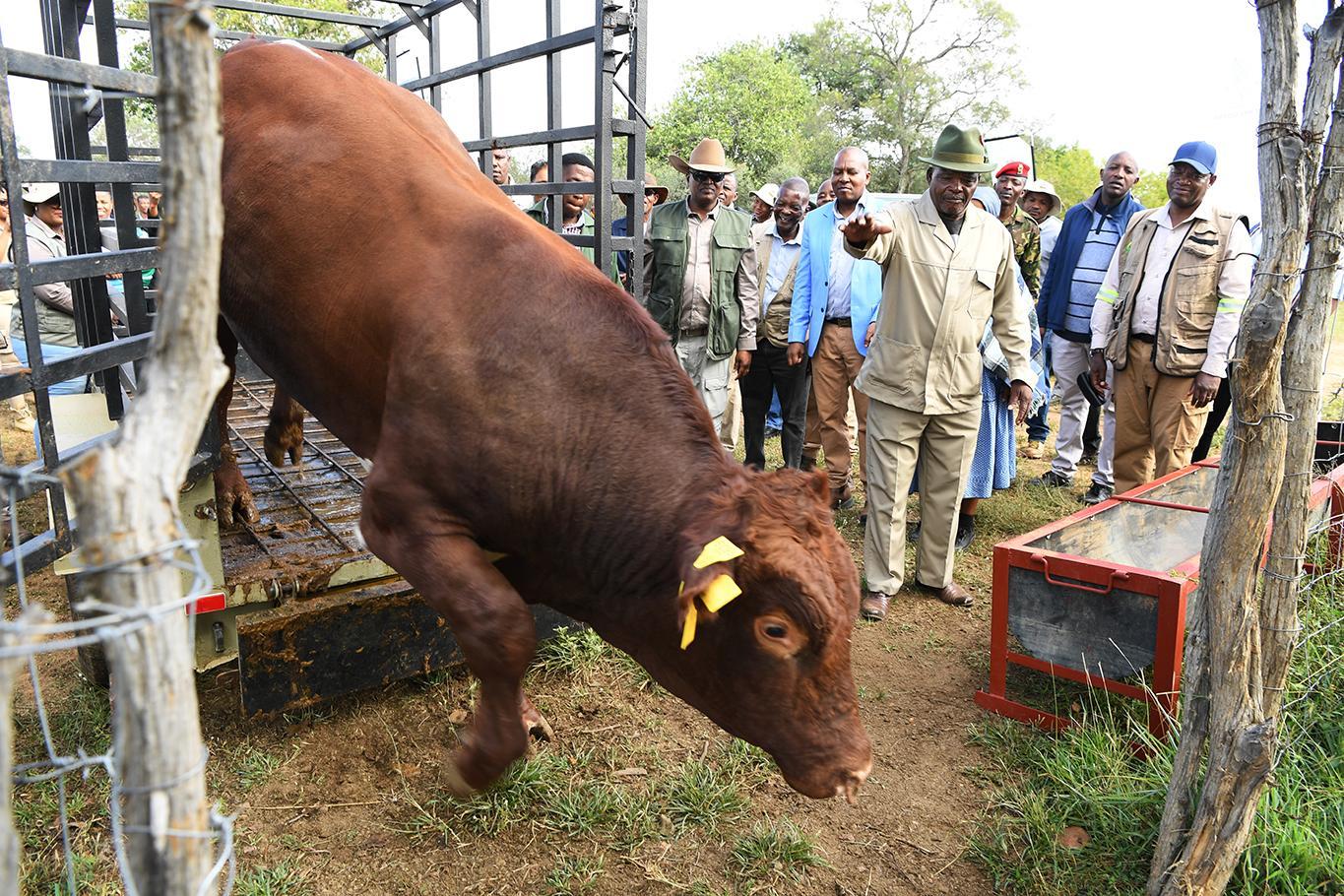Africa-Press – Botswana. In Botswana, about 80 per cent of cattle are kept in the communal land and most of them are sold to other markets instead of the lucrative European Union (EU) market.
Speaking at the fifth edition of the I-11 Farmers Association Field Day, Botswana Vaccine Institute chief executive officer, Mr Andrew Madeswi expressed this concern, stating the government’s desire for primary producers to reap the most benefits from their cattle. He urged farmers to commit to improving the low numbers of registered EU holdings by registering their holdings for EU market, keep records, and comply with all requirements in order to benefit from BMC’s competitive prices.
Putting things into perspective, Mr Madeswi stated that to date, 196 of the 763 cattle holdings in the Letlhakeng District were audited, with only 21 being EU compliant. He stated that Botswana had been able to sustain its market share in the European Union and Norway due to stringent disease control measures and a good livestock traceability system that traced cattle from farm to fork.
This, Mr Madeswi added, was made possible by the government’s investment in the Botswana Animal Identification and Traceability System (BAITS) and farmers’ dedication to compliance. He said however that over the years Botswana had not been able to meet EU quota and therefore called on farmers to improve on productivity and throughput.
Mr Madeswi said decline in national cattle population, which currently stood at 1.7million, was a threat to the industry. He added that the numbers continued to decline due to various reasons including but not limited to poor husbandry practices, droughts, bull/cow ratio, pests/diseases which lead to low productivity.
“This is a worrisome trend, which I believe need interventions from all players in the Beef industry. Livestock population in Letlhakeng District stand at 177 740 cattle, 8 785 sheep and 42 339 goats,” he said.
Mr Madeswi said government was responding to these challenges in a number of ways in an effort to increase the national herd. He said in recent times government adopted a Beef Cluster Strategy, which identified areas of improvement, among them ways of upgrading production, research and technology transfer and promotion and marketing of beef. Mr Madeswi said the strategy aimed to unlock the value chain linkages and promote market access.
Also, he said government introduced the Revised Artificial Insemination programme in November 2022 aimed at increasing the cattle population through the use of good genetic merit, advanced technology for early pregnancy detection. Furthermore, farmers were encouraged to use On-Farm Artificial Insemination programme.
He urged them to adopt good livestock management practices that would result in increased productivity or improved calving rates and higher off-take, keep records on production, business operations and even on the use of medication as required by BAITS for international market accessibility. Mr Madeswi called on I 11 farming cluster to form one strong farmers association so that they could lobby as a single front and influence programmes and policies more effectively.
The farmers were also urged to participate in the livestock performance recording scheme and breed top quality animals that could be sold in the international market. He also stated that vaccinations generally made illness control easier and reduce the need for random antibiotic usage, which is undesirable due to antimicrobial resistance
In his welcome remarks, Bakwena deputy chief, Kgosi Lawrence Mhaladi said stock theft and theft in general was paralysing the agricultural sector and urged farmers to form crime prevention committees. Mr Ditiro Mogotlhwane, the host farmer, pushed farmers to practice integrated farming and run their farms like businesses. Mr Mogotlhwane, who said he runs his farmer like business, stated that he set targets, audited every mid-year, and produced a detailed financial statements at the end of the year. He said his farm was EU compliant.
For More News And Analysis About Botswana Follow Africa-Press






